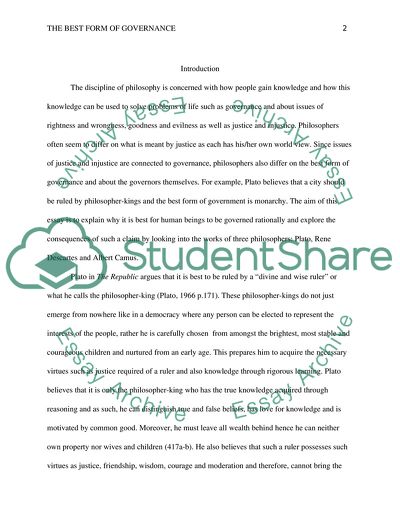Cite this document
(The Best Form of Governance Essay Example | Topics and Well Written Essays - 1500 words, n.d.)
The Best Form of Governance Essay Example | Topics and Well Written Essays - 1500 words. https://studentshare.org/philosophy/1820560-3-part-question-on-platos-republic-descartes-meditations-and-the-myth-of-sisyphus
The Best Form of Governance Essay Example | Topics and Well Written Essays - 1500 words. https://studentshare.org/philosophy/1820560-3-part-question-on-platos-republic-descartes-meditations-and-the-myth-of-sisyphus
(The Best Form of Governance Essay Example | Topics and Well Written Essays - 1500 Words)
The Best Form of Governance Essay Example | Topics and Well Written Essays - 1500 Words. https://studentshare.org/philosophy/1820560-3-part-question-on-platos-republic-descartes-meditations-and-the-myth-of-sisyphus.
The Best Form of Governance Essay Example | Topics and Well Written Essays - 1500 Words. https://studentshare.org/philosophy/1820560-3-part-question-on-platos-republic-descartes-meditations-and-the-myth-of-sisyphus.
“The Best Form of Governance Essay Example | Topics and Well Written Essays - 1500 Words”. https://studentshare.org/philosophy/1820560-3-part-question-on-platos-republic-descartes-meditations-and-the-myth-of-sisyphus.


